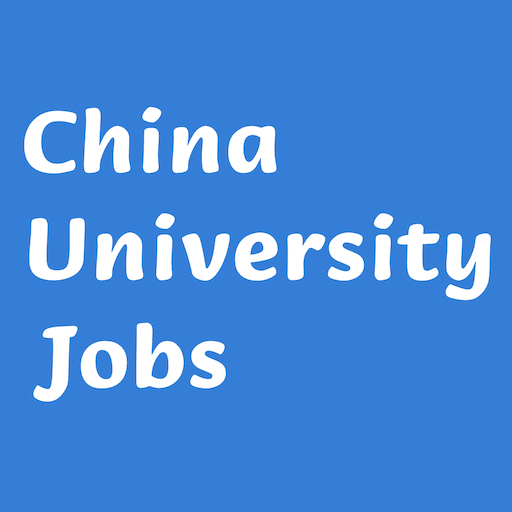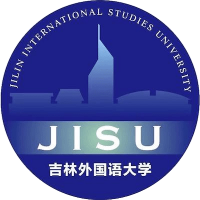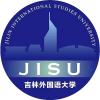About Jilin International Studies University
Jilin International Studies University is a key university in Jilin Province. The university was founded in 1995; in 2003, it was approved by the Ministry of Education as a private higher education institution; in 2005, it was granted the right to confer bachelor’s degree and began to jointly recruit master’s degree students; in 2006, through judicial notarization, all the assets of the university were donated to the society; in 2007, it became the first and the only one “provincial In 2010, approved by the State Council, the university became the only pilot unit of the national education system reform – “exploring the mode of running non-profit private universities”; in 2011, approved by the Academic Degrees Committee of the State Council, the university became the first batch of professional degree students. In 2011, it was approved by the Academic Degrees Committee of the State Council to be the first pilot private university to train professional degree postgraduates (Master of Translation); in 2015, it became the first private university in China to open Confucius Institute in the United States; in 2016, it became the only private university in China to be selected for the “National Midwest University Basic Capacity Building Project”; in 2017, it became the only private university in China to be awarded the “Chinese Government Scholarship for Foreign Students”. In 2016, it became the only private university in China selected for the “National Midwest University Basic Capacity Building Project”; in 2017, it became the only private university in China qualified for “Chinese Government Scholarship for International Students”, successfully passed the audit and evaluation of the Ministry of Education, and was approved by the Academic Degrees Committee of Jilin Province as a university for the construction of authorized doctoral degree units. In 2018, it was approved by the Academic Degrees Committee of the State Council as a master’s degree granting unit and renamed Jilin Foreign Language University with the approval of the Ministry of Education.
The university has become a national model base for reforming the private higher education system, a base for training high-quality foreign language talents in Jilin Province, a center for multilingual education in the world with the most languages and distinctive features in the northeast region, and a cradle for cultivating “multilingual translation+” talents and innovative postgraduate training mode in Jilin Province.
The university is located in the scenic Jingyuetan Tourist Scenic Area of Changchun City, covering an area of 703,000 square meters, with a building area of 323,000 square meters. The campus is a modern “garden-style” school with a natural atmosphere surrounded by mountains and water and a blend of Chinese and Western architectural styles, highlighting the unity of environment and humanity.
The university has more than 12,000 students, including 10,870 full-time undergraduates, 946 postgraduates and more than 300 foreign students, and nearly 1,000 faculty members, including more than 50 foreign teachers from the United States, Canada, England, Australia, France, Japan, Germany, Spain, Korea, Russia, Italy, Portugal, Egypt and other countries.
The university has 14 teaching units, including the School of Advanced Translation, the School of English, the School of Oriental Languages, the School of Western Languages, the School of Central and Eastern European Languages, the International Business School, the School of International Communication, the School of Education, the School of International Arts, the School of International Culture and Tourism (International Ice and Snow College), the School of Artificial Intelligence, the School of Marxism, the School of International Relations, and the Department of Physical Education, which offer English, Japanese, German, French, Korean It has 20 foreign languages, including English, Japanese, German, French, Korean, Russian, Spanish, Italian, Portuguese, Arabic, Mongolian, Indonesian, Persian, Polish, Czech, Thai, Serbian, Hungarian, Greek, Ukrainian, etc. It has 8 master’s degree authorization points in translation, education, Chinese international education, international business, accounting, tourism management, business administration, publishing, etc. and one master’s degree authorization point in pedagogy. Among them, the master’s degree in translation covers 9 languages, including English, Japanese, Russian, Korean, German, French, Spanish, Arabic and Italian. The university offers 45 undergraduate majors, covering 20 foreign languages and 7 disciplines of literature, economics, management, education, arts, engineering and law, forming “foreign language + major”, “major + foreign language”, “double foreign language” and “small language + foreign language”. The university has formed “foreign language + professional”, “professional + foreign language”, “double foreign language” and “small language + English + professional” talent cultivation modes, and built a “multilingual translation +” applied talent cultivation system, which has become a training center for “multilingual translation +” talents and innovative postgraduate talents cultivation in Jilin Province. It has become the cradle of cultivating “multilingual translation+” talents and innovative postgraduate talents cultivation mode in Jilin Province.
Jilin International Studies University has 1 national specialty, 1 national comprehensive reform pilot specialty, 3 national first-class undergraduate specialty construction points, 1 national practice teaching demonstration center (Global Village), 1 national off-campus practice education base for college students, 1 national teaching achievement award, 1 national quality course, 1 country and regional research center of the Ministry of Education, 9 first-class specialty construction points of undergraduate colleges and universities in Jilin Province, and 3 demonstration bases for transformation development in Jilin Province. There are 9 first-class specialty construction points of Jilin undergraduate universities, 3 demonstration specialty groups for transformation development in Jilin Province, 6 brand specialty in Jilin Province, 8 provincial specialty specialties in the 12th Five-Year Plan, 5 provincial specialty specialties in the 13th Five-Year Plan, and the number of provincial specialty specialties accounts for one third of the total number of specialties in the university. There are 2 high-level advantageous characteristic disciplines, 13 provincial research platforms such as Provincial Collaborative Innovation Center for Major Needs, Provincial New College Think Tank, Provincial Humanities and Social Sciences Key Research Base, Provincial Higher Education Research Base, 1 provincial innovation and entrepreneurship demonstration base, 4 provincial experimental zones for talent training mode innovation, 5 provincial experimental teaching demonstration centers, 2 provincial off-campus practice bases, 11 provincial excellent teaching teams, and 11 Jilin University Master Teacher Workshops. There are 11 provincial excellent teaching teams, 1 famous teacher studio in Jilin province, 1 “Huang Danian type teacher team” in Jilin province, 7 recipients of the special allowance of the State Council, 1 member of the Academic Degrees Committee of the State Council, 1 national supervisor, 1 member of the expert committee for undergraduate education teaching evaluation of the Ministry of Education, 5 members of the Steering Committee for Teaching Foreign Languages in Higher Education, and 5 members of the Steering Committee for Teaching of Foreign Languages in Higher Education. There are 5 members of the Steering Committee for Teaching Foreign Languages in Higher Education, 2 members of the Steering Committee for Teaching Education, 1 member of the Steering Committee for Teaching Computer Science in Colleges and Universities of the Ministry of Education, 24 senior experts of Jilin Province, Changbai Mountain Chair Professors, Changbai Mountain Master Teachers of Skills, young and middle-aged professional and technical talents with outstanding contribution at provincial level, and 5 famous teachers at provincial level. There are 11 provincial first-class courses, 19 provincial high-quality courses, 31 provincial excellent courses, 2 provincial online open courses, and 1 provincial discipline education demonstration course.
The university actively promotes the internationalization of education, at present, the university has cooperated with more than 200 universities and educational institutions in more than 30 countries and regions to carry out undergraduate double-degree, undergraduate master’s degree, master’s double-degree and other study abroad programs; approved three Sino-foreign cooperation programs of the Ministry of Education, with the City University of New Jersey in the United States to open a finance program, with the Munich University of Applied Languages in Germany to open a German program (translation direction), with Spain It has been awarded the “Silk Road Chinese Government Scholarship”, “China-Africa Friendship Chinese Government Scholarship” and “Jilin Government Scholarship for Foreign Students”. It has the qualifications of “Silk Road Chinese Government Scholarship”, “China-Africa Friendship Chinese Government Scholarship” and “International Chinese Teacher Scholarship”. Every year, more than 800 students are sent abroad to participate in undergraduate double-degree and undergraduate master’s degree programs as well as long- and short-term language and cultural exchanges, and the proportion of students of some majors going abroad has reached 100%. At present, about 300 foreign students are accepted each year.
The university has advanced and complete teaching facilities and a large comprehensive language practice teaching base – Global Village, which was identified as a national experimental teaching demonstration center by the Ministry of Education in 2013 and named as a “World Center for Multicultural Education” by UNESCO. There are experimental training centers for non-foreign language majors and provincial experimental teaching demonstration centers for economics, management, computer, and mental health, etc.; there is an international innovation and entrepreneurship education base – World Bridge Building, which provides students with a “multi-matrix integration” of innovation and entrepreneurship. The university has an international innovation and entrepreneurship education base, the World Bridge Building, which provides students with “multiple matrix integration” of innovation and entrepreneurship. There are simultaneous interpretation hall, digital voice room, digital recording room, professional simulation laboratory, office automation laboratory, microcomputer laboratory, multimedia classroom, multi-functional lecture hall, as well as plastic sports field, gymnasium, indoor swimming pool and other educational teaching and cultural and sports facilities. The university library is an open library integrating literature collection, study and reading, communication and seminar, scientific research and cultural leisure, and incorporating modernization, informationization, ecology and internationalization. It is open 355 days a year.
Since its establishment, the school has always adhered to the ideology of running the school with social benefits first and taking the road of public welfare. The school is the first private university in China that firmly proposes to run the school for public benefit without personal return, and the first and the only private university that has notarized its property.
The school always insists on the advanced school philosophy of “all for the sake of students’ success and success, so that Jiwai can become a bridge for Chinese sons and daughters to the world and a bridge of Chinese and foreign cultures”, and strives to provide students with the most serious, responsible and best education; the school proposes to run the school in a way worthy of “parents’ trust, students’ time and society’s trust”. The school proposes to run a school worthy of “parents’ trust, students’ time, society’s attention and educators’ conscience”. Under the guidance of this idea, the school insists on facing the market, highlighting the characteristics, practicing internal skills, strengthening management, running a high-quality school and building a brand.
The school insists on the concept of “education for people, moral education is the first”. In the ideological education and management of students, the school has implemented the “six-in-one” working mechanism in which the three departments of ideological and political education, mental health education and student management work closely together, interpenetrating and forming a synergy. Through this mechanism, the management system to achieve cross-appointment; in the work system to implement the joint meeting; in the work content to achieve the integration of penetration. The school pays attention to the mental health education of students, and forms a perfect mental health education system by establishing a student psychological database and a three-level management network of school, faculty, class and dormitory; focuses on the combination of moral, mental and physical education, and promotes the healthy development of students’ body and mind by carrying out psychological outreach training activities.
The school emphasizes the trinity of “knowledge, ability and personality”. With the main goal of cultivating students’ comprehensive quality, the university has formulated and implemented the “Undergraduate Talent Cultivation Specifications and Programs”, scientifically designed the knowledge, ability and quality objectives of students from their freshman to senior year, and increased the number of compulsory public courses such as mental health, introduction to management, etiquette and public relations in the curriculum in addition to professional teaching. The number and categories of humanities courses have been increased in the public elective courses, and national studies courses have been added to cultivate students’ patriotism. It also sets up employment education, education for upbringing, character education, quality education, cultivation of practical ability and innovation ability and mental health education, etc.
The school focuses on the role of the second classroom. There are 227 professional clubs at school level and 67 comprehensive clubs at school level. The school organizes a variety of student clubs, social practice activities, various competitions, various cultural and sports activities, lectures, international culture and art festival series of activities, youth volunteer activities, “three rural activities”, joint construction activities, visits to patriotic education bases, love and other public welfare activities to expand students’ horizons and promote Students’ physical and mental health and personalized development.
The university attaches importance to the important role of social practice activities in cultivating the noble character of college students, broadening their knowledge, and cultivating their comprehensive ability and quality. By formulating and implementing the “Practical Teaching Guidance Outline” and “Second Classroom Activity Guidance Outline” and the “Implementation Rules” for the implementation of these two outlines, the social practice of college students has been incorporated into the education and teaching plan.
Jilin International Studies University implements the management mode of “full staff, full process, full range and full accommodation”. It advocates “teaching and education, management and education, service and environment education”. The school takes the construction of teachers’ morality as the entry point and brings the learning style by grasping the teaching style; through the school style of “far-reaching, pragmatic and perfection”, the teaching style of “dedication and love for students, erudition and good guidance” and the “self-improvement and self-discipline, seeking for new ideas”. The “three winds” construction of the school style of “Zhiyuan, pragmatic, and perfection”, the teaching style of “dedication, love for students, and knowledgeable guidance”, and the “self-improvement, self-discipline, and newness” of the school style, as well as the “three cultures” construction of “institutionalization, proceduralization, and standardization” have been continuously strengthening the management quality and service level. The school has been building a unique campus culture with the main content of “simple being, down-to-earth work” and “great things must be done in detail” to create a harmonious and warm campus environment.
In the past three years, students have won 118 national awards and 307 provincial and municipal awards in various professional competitions. The political quality of students has been continuously enhanced. More than 55% of the current students have submitted applications to the Party organization and the proportion of student Party members reached 3% of the current students. A good culture of civilization and courtesy, respecting teachers and loving students is gradually formed in the campus. A large number of advanced groups and outstanding individuals have emerged in the school, such as “provincial excellent class collective, provincial and municipal civilized college students”. Students’ life goals and learning purposes have become clearer, and the culture of learning has become stronger day by day.
To date, the school has graduated more than 30,000 students in total. The graduates are widely welcomed by employers for their proficiency in foreign languages, management, professionalism, good listening and speaking skills, proficiency in computer operation, good moral character, good manners, solid basic skills, dedication and love for work, strong team spirit, strong public relations awareness and high overall quality. In recent years, the employment rate of graduates has always been maintained in the forefront of provincial colleges and universities, and the employment quality has been continuously improved.
The school has received cordial care and high praise from leaders at all levels. Peng Peiyun and Gu Xiulian, former vice chairmen of the Standing Committee of the National People’s Congress, Yan Junqi, chairman and Zhu Yongxin, vice chairman of the Central Committee of the Democratic Progressive Party, Chen Baosheng, minister of education, Bayin Chaolu, former secretary of the Jilin Provincial Party Committee, Han Jun, vice secretary of the Jilin Provincial Party Committee and governor, and other national and provincial leaders have visited the school to inspect and guide the work. The expert group of undergraduate teaching conformity assessment of the Ministry of Education assessed the school as: “This is a private university with realm, taste, pursuit, cultivation, very sunny, very determined, and is the banner of private colleges and universities in China”. The expert group of undergraduate teaching audit and evaluation of the Ministry of Education assessed the university as: “with sentiment, commitment, contribution, level, characteristics, soul and hope, worthy of being a banner of private colleges and universities in China”.
The achievements made by the university have been praised and affirmed by all walks of life, and the university has been awarded as “Top 20 Private Universities in China in terms of Comprehensive Strength”, “Top 10 Private Universities in China in terms of Integrity”, “Top 20 Private Universities in China in terms of Education and Teaching Quality”, and “Top 20 Private Universities in China in terms of Graduate Employment”. Top 50 Universities with Typical Experience in Graduate Employment” and other honors. In the ranking of private universities in China published by China Alumni Association, the university has been ranked among the top 10 private universities in China for many years and topped the list of private universities in language category in China, and was rated as one of the top private universities in China; in the ranking of comprehensive competitiveness of universities in various regions in China in 2018, the university ranked first in the ranking of comprehensive strength of private universities in northeast China; in the ranking of private universities in China by Soft Science in 2020 and 2021, the university ranked first. The school is ranked No. 1 in both the 2020 and 2021 SoftTech China Private University Rankings.
The university is committed to being a non-profit, century-old university, a private university with distinctive features for market needs, a private university with internationalization and globalization, and a high-level private foreign language university.




